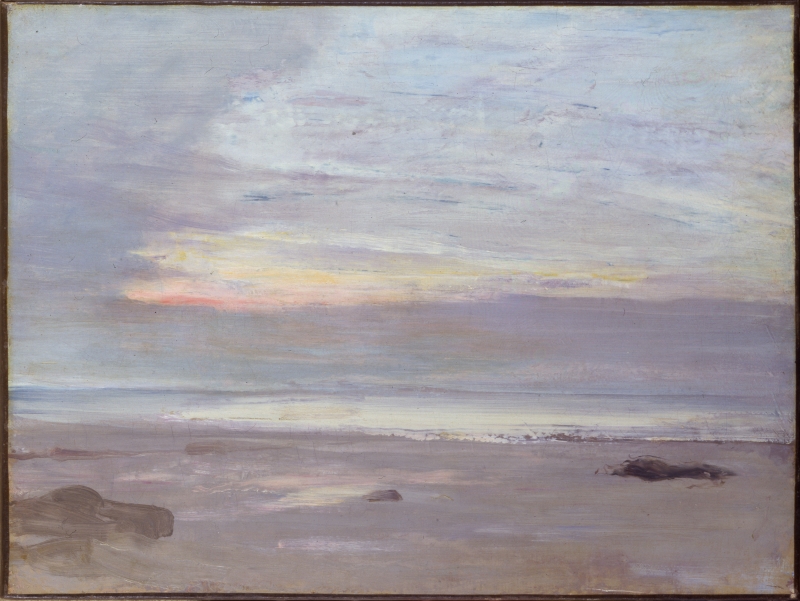Technique
The canvas may originally have been acquired in France. Although it does not correspond exactly with French sizes, it is close to the French 'toile de 8' (33 x 46 cm, for a 'paysage').
It was painted thinly, with a lot of palette knife work, particularly on the beach. The thick strokes of paint in the sky and at the edge of the water soften the effect of the palette knife. The rocks in the foreground are painted more fluidly with a soft brush. The sunset colours have a luminous quality.
Conservation History
In 1892, Whistler assured the owner, 'Don't be at all afraid of my touching the picture - I am not dreaming of such a thing - I shall only have it cleaned and varnished beautifully.' 1
Frame
Whistler proposed to have it reframed for exhibition in 1892. He wrote to Frederick Jameson (1839-1916), on 14 January 1892, 'I want you to let me have it framed in one of my newly composed frames. They are very beautiful - and your picture will gain five times in stateliness ... The frame will cost you very little.' 2 And a couple of weeks later, he repeated,
'The new frame will really cost very little - and the difference to the work will be immense ... and now send up the picture at once to Cheyne Walk - My wife will receive it and see to its being measured for its frame - so that there may be no time lost.' 3
On 14 February David Croal Thomson (1855-1930) told Whistler that Frederick Henry Grau (1859-1892) had a frame 'in hand' and the painting was with Stephen Richards (1844-1900). 4
Last updated: 1st December 2020 by Margaret






